Spotlight Kampala is a multi-institutional research collaboration of universities and community advocates that aims to shed light on the inequities faced by informal urban communities in accessing and utilizing electricity. Our data provides important baseline statistics on metrics of access like access rates, affordability, supply reliability and quality as well as an understanding of how community members perceive and navigate barriers to access. We aim not only to provide summary statistics, but to ground these learnings in the daily lived experience of Kampala’s informal residents. Community participation is a core objective of the work, with community members involved in each step of research design, execution, and dissemination. The project also focuses heavily on working closely with local stakeholders like the Government of Uganda’s Ministry of Energy and Mineral Development, the utility Umeme Limited, and community-based organization like ACTogether Uganda and the National Slum Dwellers Federation of Uganda.
For more information and contact with the project team, visit the Spotlight Kampala website.
For the UC Berkeley Climate Justice course, syllabus, click here.
Meet the Laos Energy Modeling and Policy Analysis (Undergraduate!) Team:
The focus of this inter-disciplinary and inter-university research group is to develop sustainable energy, water, and land-use scenarios for Laos, and to work with local stake-holders on the costs and benefits for communities, the nation, and the regional commerce in energy, water, food, timber and other commodities.
Aaditee Kudrimoti
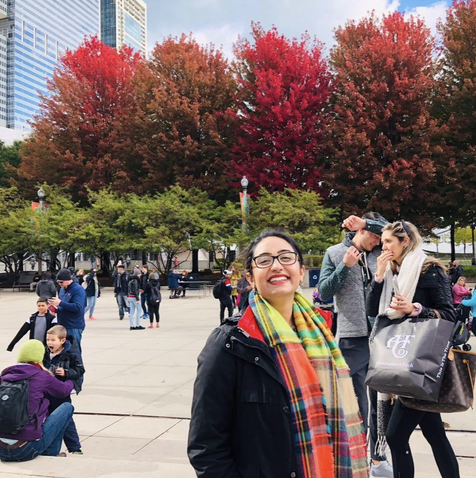 Bio: Aaditee is a fourth-year at UC Berkeley studying political science and public policy with a concentration in energy, development, and international relations. Aaditeeis originally from Tucson, Arizona, where she began to develop an interest in international environmental affairs. At UC Berkeley, Aaditeeis working on projects in the political economy of Chinese development finance, rural electrification, and collective action. Aaditeehas become especially interested in how the rise of renewable technology is influencing energy diplomacy around the world. She hopes to pursue a career in academia and public policy and work on governance tools to build the bargaining capacity of LDCs against MNCs, foreign state-owned enterprises, etc. on the subject of FDI and other types of investment. She sees SWITCH-Laos as having the potential to serve as a critical tool in assisting the increase of the Lao people’s bargaining power over FDI in the energy sector and thus their autonomy in determining their own economic development. Outside school, Aaditee’s interests include dance, food journalism, and cooking.
Bio: Aaditee is a fourth-year at UC Berkeley studying political science and public policy with a concentration in energy, development, and international relations. Aaditeeis originally from Tucson, Arizona, where she began to develop an interest in international environmental affairs. At UC Berkeley, Aaditeeis working on projects in the political economy of Chinese development finance, rural electrification, and collective action. Aaditeehas become especially interested in how the rise of renewable technology is influencing energy diplomacy around the world. She hopes to pursue a career in academia and public policy and work on governance tools to build the bargaining capacity of LDCs against MNCs, foreign state-owned enterprises, etc. on the subject of FDI and other types of investment. She sees SWITCH-Laos as having the potential to serve as a critical tool in assisting the increase of the Lao people’s bargaining power over FDI in the energy sector and thus their autonomy in determining their own economic development. Outside school, Aaditee’s interests include dance, food journalism, and cooking.
Alex Lathem
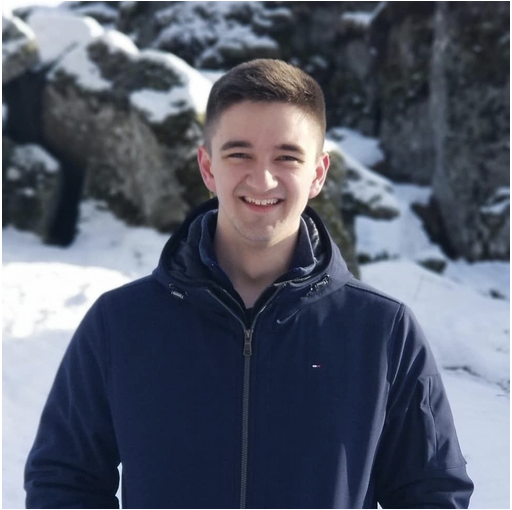 Bio: Alex Lathem is a third-year undergraduate at Yale University. He is a physics major with several years of experience using programming languages, including Python SQL, C, and Bash, to analyze scientific data. Previous research projects Alex has worked on include astrometry of near-Earth asteroids and the creation of a Hubble curve through the analysis of Type Ia supernovae. Alex spent the summer of 2019 working on the SWITCH model for China, and is very excited to apply the skills he learned there to a version for Laos. Outside of research, Alex is also interested in music, video game design, linguistics, and history.
Bio: Alex Lathem is a third-year undergraduate at Yale University. He is a physics major with several years of experience using programming languages, including Python SQL, C, and Bash, to analyze scientific data. Previous research projects Alex has worked on include astrometry of near-Earth asteroids and the creation of a Hubble curve through the analysis of Type Ia supernovae. Alex spent the summer of 2019 working on the SWITCH model for China, and is very excited to apply the skills he learned there to a version for Laos. Outside of research, Alex is also interested in music, video game design, linguistics, and history.
Ashley Yip
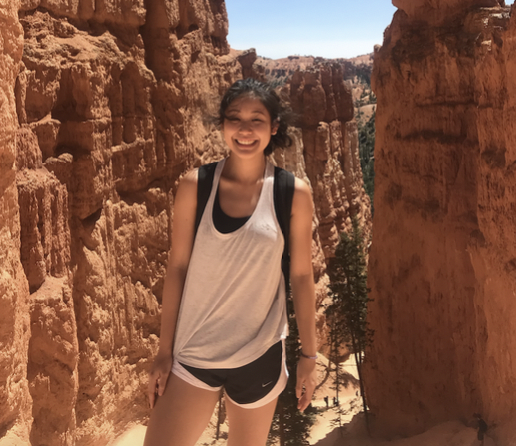 Bio: Ashley is a second-year undergraduate studying environmental science with an emphasis in global politics. She moved to New Mexico, where she developed an interest in environmental affairs. At UC Berkeley, she is involved in a pre-law association that helped her explore her interest in law and how she may integrate that into environmentalism. Off campus, she is working on a sex education reform project in Singapore with the Ministry of Education. She is constantly exploring the intersection between policy, education, and the environment. She hopes to return home to Singapore and pursue a career in international environmental policy or law within Southeast Asia. Ashley chose to work on SWITCH-Laos not only because greening ASEAN’s economic development is essential to tackling climate change, but also because she is familiar with the demographic. She has done research in regards to both urban and rural agriculture in Asia and the US, and led research for environmental management in business operations. Outside of school, her interests include climbing, hiking, piano, and camper vans.
Bio: Ashley is a second-year undergraduate studying environmental science with an emphasis in global politics. She moved to New Mexico, where she developed an interest in environmental affairs. At UC Berkeley, she is involved in a pre-law association that helped her explore her interest in law and how she may integrate that into environmentalism. Off campus, she is working on a sex education reform project in Singapore with the Ministry of Education. She is constantly exploring the intersection between policy, education, and the environment. She hopes to return home to Singapore and pursue a career in international environmental policy or law within Southeast Asia. Ashley chose to work on SWITCH-Laos not only because greening ASEAN’s economic development is essential to tackling climate change, but also because she is familiar with the demographic. She has done research in regards to both urban and rural agriculture in Asia and the US, and led research for environmental management in business operations. Outside of school, her interests include climbing, hiking, piano, and camper vans.
Rachel Ng
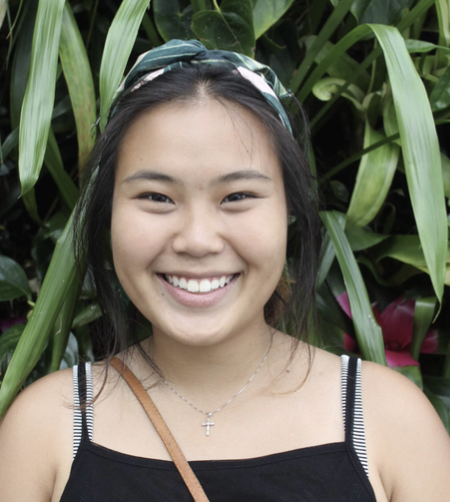
Bio: Rachel is a second-year Environmental Science and Data Science major. A Singapore-native, Rachel describes that SWITCH-Laos extremely important to her because it is an important step towards the energy security of Southeast Asia. She believes that the sustainable electrification of Southeast Asia is key to regional grid stability and energy trade. She is pursuing SWITCH-Laos as critical in leading the way towards sustainable electrification. Rachel is interested in the intersectionality between climate change and community, exploring how community based issues caused by climate change can be alleviated through data. Furthermore, Rachel is currently concerned about equal access to education and volunteers weekly as a mentor to elementary school students. In the future, she hopes to return to Singapore and guide environmental change through creating an ecosystem of sustainable communities and businesses. Her hobbies include dance, rock climbing and water sports.
RAEL has partnered with both the Pontifical Academy of Sciences and a number of other groups worldwide that are engaging the Vatican and interested partners to utilize the dialog around The Encyclical to promote equity, sustainable development and climate protection.
Events in this initiative include:
RAEL and Vatican publications such as:
November 2, 2016 roundtable:
Actualizing the Vision of Laudato Si’: On Care for Our Common Home
Kammen, D. M., Alstone, P. and Gershenson, D. (2014) “Energy for sustainable and equitable development,” Sustainable Humanity, Sustainable Nature: Our Responsibility, Pontifical Academy of Sciences, Extra Series 41, Vatican City 2014 Pontifical Academy of Social Sciences, Acta 20, Vatican City 2014
Videos:
Climate Change, Consumerism, and the Pope
Energy storage deployment and innovation for the clean energy transition
Noah Kittnera,b, Felix Lillb,c and Daniel M. Kammen*a,b,d
a Energy and Resources Group, UC Berkeley, Berkeley, CA, USA
b Renewable and Appropriate Energy Laboratory, UC Berkeley, Berkeley, CA, USA
c Center for Digital Technology and Management, TU Munich, Munich, Germany
d Goldman School of Public Policy, UC Berkeley, Berkeley, CA, USA
The Platform for Energy Access Knowledge (PEAK) is a project partnership between RAEL and Power for All, a global campaign to accelerate the market-based growth of decentralized renewables as the key to achieving universal energy access. The campaign, established in 2014, serves as a collective voice for businesses and civil society focused on off-grid renewable solutions. The research products of this partnership will provide critical evidence needed to support widespread adoption of distributed technologies.
PEAK is an interactive information exchange platform designed to help aggregate and repackage the best research and information on energy access into compelling data-driven stories for a range of target audiences to ensure maximum visibility, usability and discoverability of that information by individuals, organizations and communities working to make energy services accessible to all.
The Power for All Campaign is directed by Kristina Skierka. PEAK research is directed by Dr. Rebekah Shirley, current Postdoctoral Researcher at RAEL.
See PEAK’s Launch Press Release, March 2016
See PEAK products here and look out for our web portal soon to come.
Recently, PEAK conducted a quantitative analysis that examines the policies of five high-growth markets striving to achieve universal energy access — India and Bangladesh in Asia, and Kenya, Tanzania and Ethiopia in Africa — and highlights areas for policy prioritization in Low Energy Access countries. Our research is currently under peer-review. See an unpublished, draft/working version of our manuscript and look out for more information soon.
Our latest Property Assessed Clean Energy project features in Science:
http://science.sciencemag.org/content/355/6328/921.3
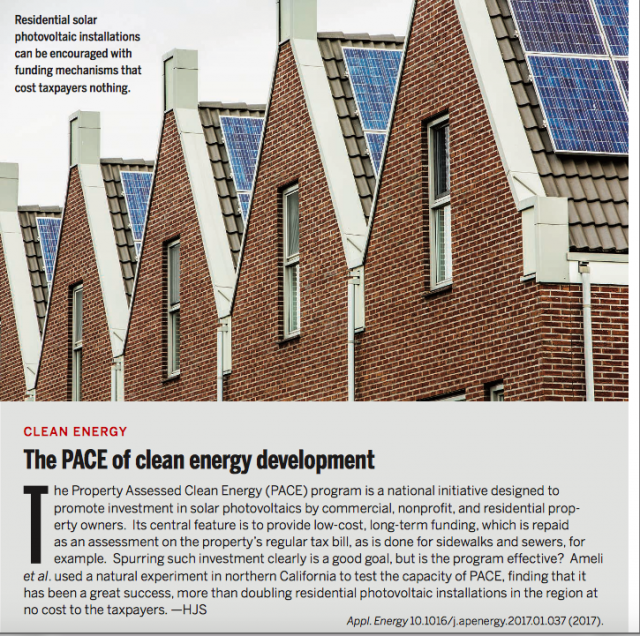
Faculty Profile
The Sustainable Islands group at RAEL is involved in understanding the scope for renewable energy and energy efficiency in the Small Island Developing State (SIDS) context. We are involved in a number of projects that involve feasibility analysis, resource optimization and energy system modelling. We conduct assessments and build decision support tools for policy makers and individuals — to support the build out of sustainable, low carbon island economies. Some of our past projects are listed here:
Energy Sector Trends in the Caribbean
Professor Kammen and graduate student Rebekah Shirley recently published an article on the history of energy sector development in the Caribbean. The paper also looks at a number of current renewable energy projects in the region, performs cost benefit analysis and discusses opportunities for future renewable penetration in the region. Our work is highlighted in Nature Climate Change.
Shirley, R. and Kammen, D. (2012). Renewable energy sector development in the Caribbean: Current trends and lessons from history. Energy Policy. Volume 57, June 2013, Pages 244–252
Energy Efficient Low Income Housing, French Polynesia
The RAEL Sustainable Islands group was invited to collaborate with researchers from the UC Berkeley Gump Station in Moorea and the Polynesian Housing Office to conduct a integrated study on the sustainability of low income housing prototypes based on materials and thermal performance. Our team contributed the carbon footprint assessment to this study. Check out the final report above.
Carbon Footprints and Green-Job Potential in the USVI
Professor Kammen and graduate student Rebekah Shirley were invited to participate in the NREL Energy Development in Island Nations Initiative, launched in St. Thomas, USVI in 2010. Since then they have collaborated with NREL and various agencies in the territory to develop a household carbon calculator and green jobs estimator used as tools in public education and decision making. Kammen and Shirley also collaborated with NREL and the OAS to prepare a survey of the status of Energy Policy in various Caribbean Islands.
Shirley, R., Jones, C. and Kammen, D. (2012). A household carbon footprint calculator for islands: Case study of the United States Virgin Islands. Ecological Economics. Volume 80, August 2012, Pages 8–14
U.S. DOE (2011). Energy Policy and Sector Analysis in the Caribbean 2010 — 2011.
Shirley, R. and Kammen, D. (2012). Estimating the Potential Impact of Renewable Energy on the Caribbean Job Sector. RAEL Report 2012.1.
Green Jobs in Grenada
RAEL collaborated with the UN Department of Economic and Social Affairs (DESA) on a road map for sustainable economic growth in Grenada. Professor Kammen and graduate student Rebekah Shirley prepared a chapter on green job potential while ERG alumni Dan Prull prepared a chapter on future energy options. The report was published for the Rio +20 Summit.
UN DESA (2012). Road Map on Building a Green Economy for Sustainable Development in Carriacou and Petite Martinique, Grenada.
Emerging economies will account for more than 90 percent of new energy-generation capacity by 2035, and Latin America is no exception to this trend. In the last 40 years, the region’s primary energy demand has more than doubled. In a global environment of increasingly volatile fuel prices, emerging technologies, and climate-change impacts, the continued increase in demand presents challenges and opportunities to Latin America and the Caribbean. To manage the next phase of development, the region’s governments will need to develop new energy sources and pay more attention to sustainability.
Kammen and students (Juan Pablo Carvallo, Diego Ponce de Leon Barido and Rebekah Shirley) discussed strategies to design and evaluate programs for managing energy and other resources in the region both as a speaker panel for the Center for Latin American Studies at UC Berkeley and in a new publication on integrated tools for building low-carbon economies in Latin America and the Caribbean.
Our researchers also delve into the specific case study of Nicaragua along with Fulbright Nexus Fellows 2012–2013. This group explored three case studies at the national, regional and community levels in Nicaragua: breadfruit and food insecurity; rainwater harvesting on the Pacific coast; and, bio-energy production from agricultural waste. This research shows the increasing need to see the climate, land, energy, and water (CLEW) sectors as interrelated, and to proactively plan policy with these interconnections in mind. Nicaragua’s opportunities for sustainable development within a CLEW nexus framework are sufficiently large that the country could well become an example of wise natural resource use for Latin America and the world.
Press release on our work with biogas digesters in Mexico:
Fusion, March 24, 2014. These students have bold ideas on how to make renewable energy more accessible.
Article, full video and photos from our panel discussion with CLAS:
Center for Latin American Studies. February 10, 2014. Sustainable Energy Systems in Latin America and the Caribbean.
Read more about our involvement in the Fulbright Regional Network for Applied Research (NEXUS) Program 2012–2013.





You must be logged in to post a comment.